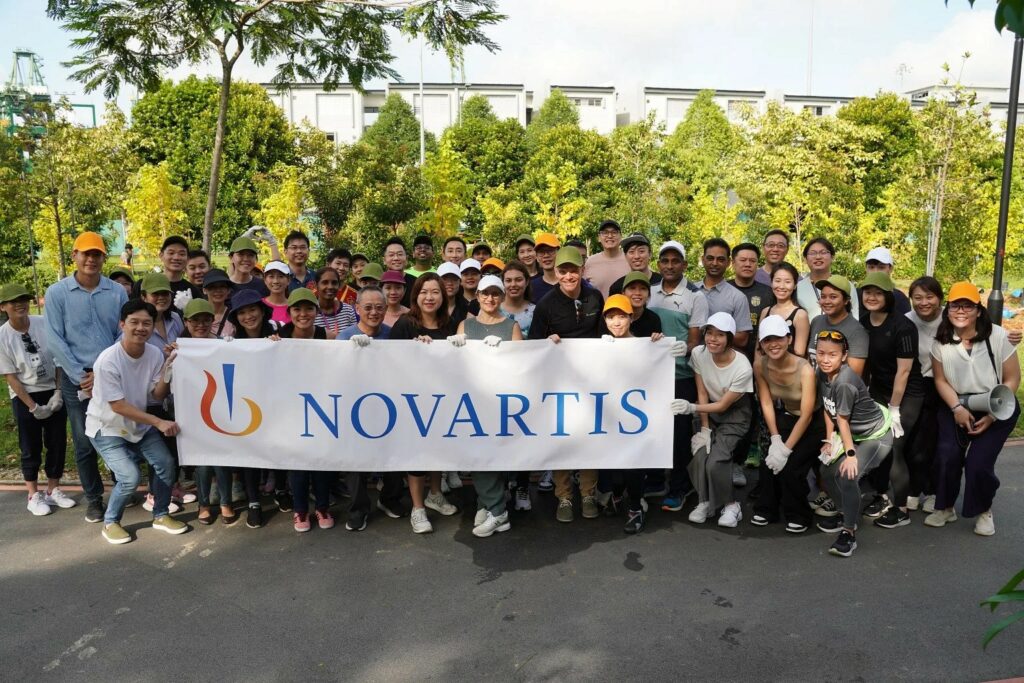But younger staff are not forgotten.
Recognising that many Gen Z and millennial employees value a variety of experiences and prospects along their career journey, Novartis offers opportunities for short-term projects and placements. Stretch assignments give them a taste of other job functions, while overseas stints allow them to immerse in a different market.
“This age group is more curious and very enthusiastic about such experiences. It can be a challenge to satisfy everyone, but we try our level best to meet the needs of different associates,” says Ms Poh.
For employees to speak up about their needs, employers must first listen. At Novartis, this starts with an “unbossed” working environment where the hierarchy is flattened and leaders try to be approachable. The firm’s open-concept office in Pasir Panjang is testament to that philosophy.
“I don’t have a designated room or assigned desk,” says Ms Poh. “We embrace a flexible and connected workspace, so like everyone, I have a locker to store my belongings and can choose where I’d like to sit for the day. This setup encourages open interaction – anyone can approach me, ask me a question or have a chat with me.”
These little things add up and create psychological safety – an outcome Novartis measures every quarter in an employee engagement survey to sustain a culture of trust.
“When associates know their ideas and opinions are valued and taken in serious consideration, they’re more likely to come forward to give you feedback, whether it’s positive or negative,” says Ms Poh.
Novartis begins cultivating this trust right from the recruitment stage. To mitigate unconscious bias during interviews, it does not ask candidates about their current or previous salaries. This practice applies to both external hires and internal transfers and comes on the back of the UN-led Equal Pay International Coalition.
“Novartis’ philosophy is that you should be paid according to the role, without any interference from factors such as gender, race, or age,” says Ms Poh.
Pay transparency does not mean employees know how much one another makes. The salary information of each employee remains confidential. Ms Poh emphasises that it simply means staff know their salary range and how it compares with peers within the organisation and the wider industry.
For employees, this information inspires confidence that they are being paid competitively and empowers them to make informed career decisions. Furthermore, it encourages individuals and their managers to talk about pay more constructively.
“We encourage associates to have open and diverse conversations with their manager about their career journey at Novartis,” says Ms Poh.







